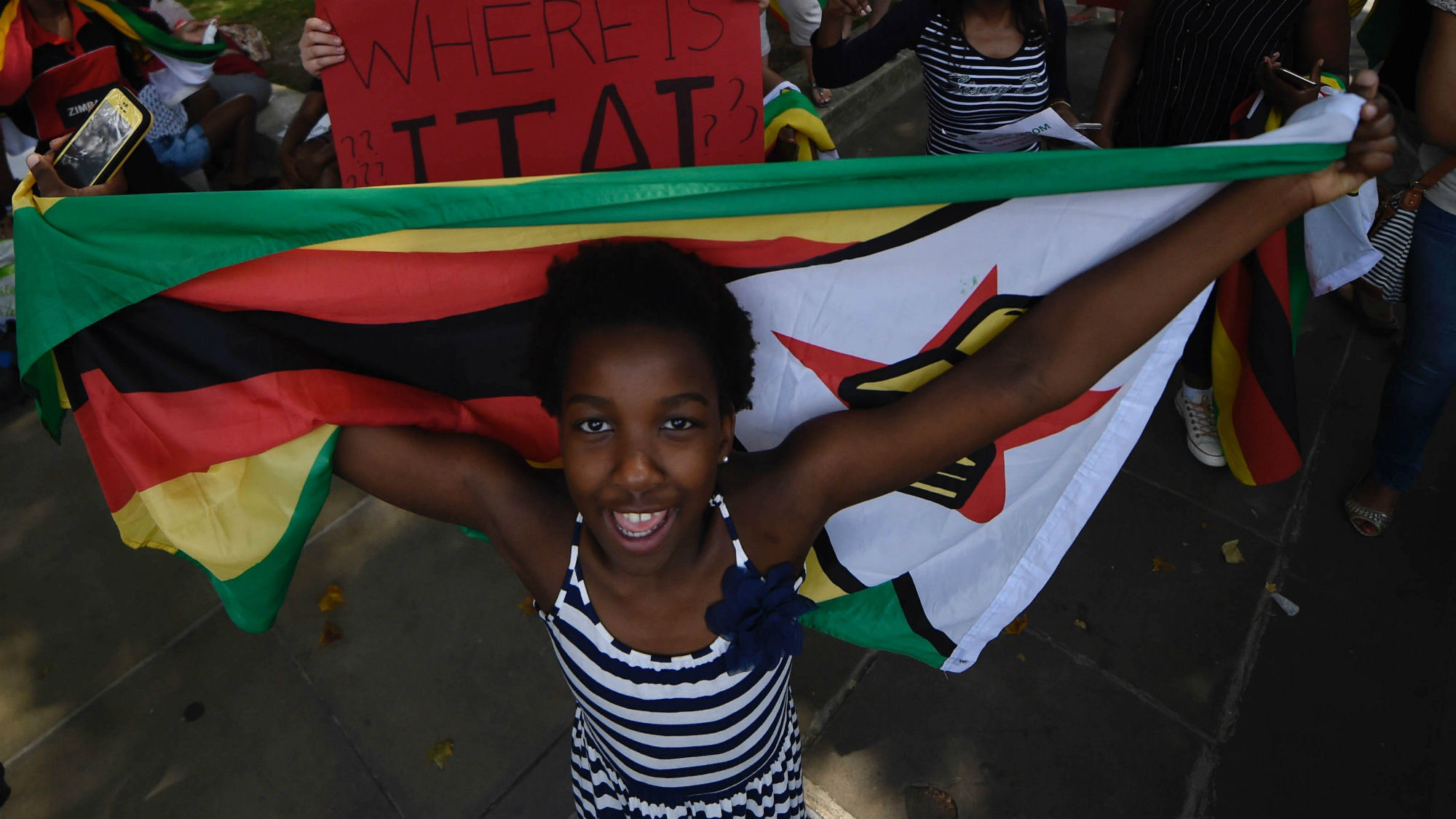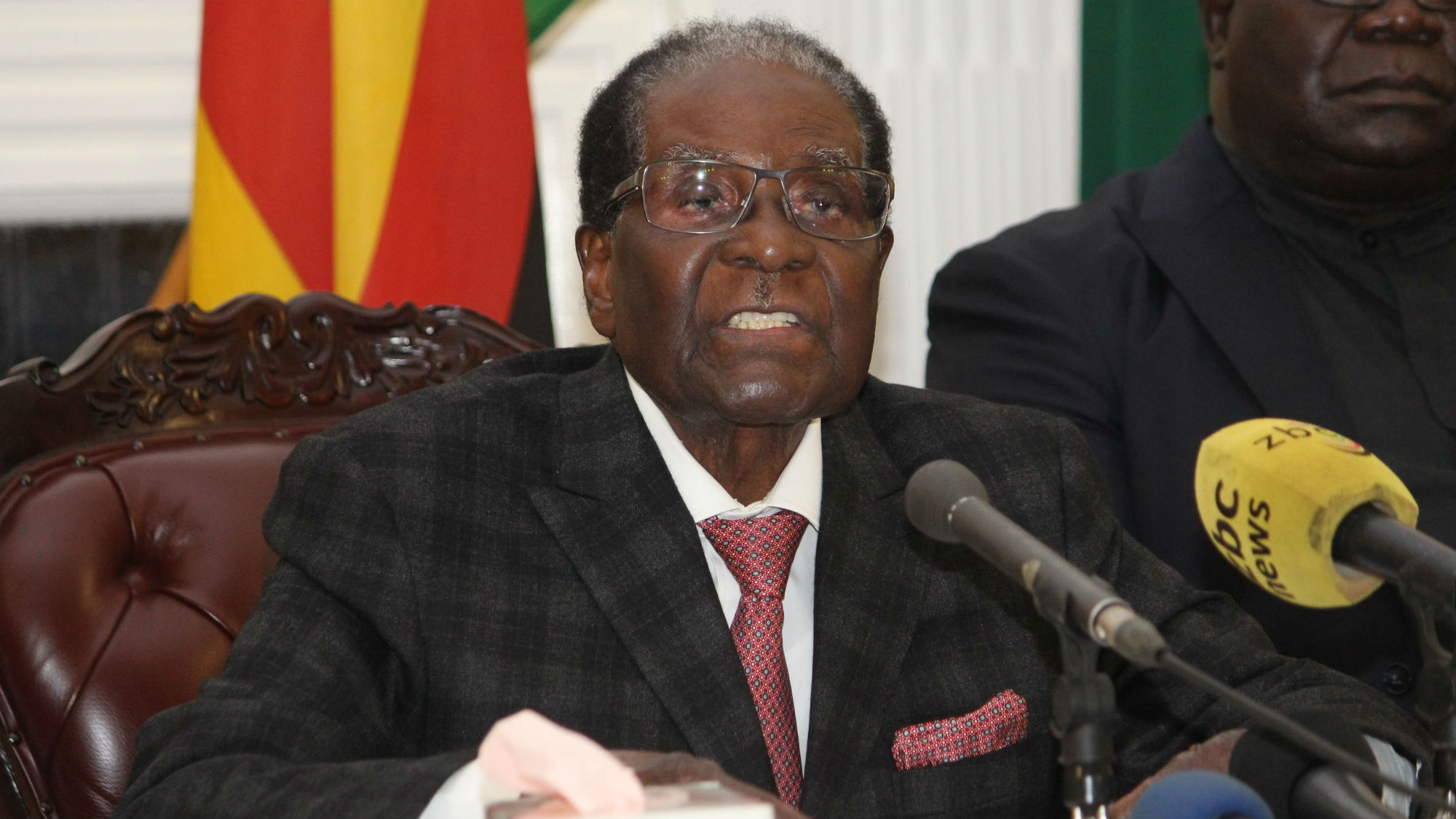What Mugabe’s resignation means for women in Zimbabwe
He's gone. What next?


He's gone. What next?
Robert Mugabe triggered mass celebration on the streets of Zimbabwe after submitting his shock resignation letter during official proceedings to impeach him. MPs danced on tables and people partied through the night in the Zimbabwean capital of Harare, rejoicing at the downfall of a despot leader, who has finally relinquished power after 37 years of dictatorship. But what does it mean for women's rights?
At 93, after almost four decades in power, Mugabe, his Zanu-PF party and his increasingly restrictive policies, including violence against any opposition has been credited with the country’s economic downfall. At one point, Mugabe claimed a country could never go bankrupt, despite being leader of the world’s fastest shrinking economy with an annual inflation of 231 million per cent, in 2008.
After reports of rigged elections and violence against ‘traitors’, it seemed the dictator would never back down, but after an eight-day drama that began when the military seized control of the country, tens of thousands of Zimbabweans took to the streets and he finally quit.
‘It was awe-inspiring, like nothing I’ve ever seen before,’ Zimbabwean barrister, Patti Kachidza, told Marie Claire after returning to the UK this week. 'We have to remain hopeful for a reignition of industry, jobs and the lifting of the police state. Right now, you never know who you’re going to meet in a pub or a shop and if you’re too critical of the government, you might get a knock on the door.'
Women's rights under Mugabe
Women in Zimbabwe have long been marginalised politically and hold only a handful of positions of power, despite accounting for over half of the population (52 per cent). Zimbabwe’s 2013 Constitution provides a strong legal framework for the promotion of gender equality and women’s empowerment. But despite the legal commitment at international, regional and national levels, women and girls in Zimbabwe continued to face challenges under Mugabe.

'Women’s rights are taken as a given because of the constitution but in practice, that doesn't always happen’ adds Kachidza. 'In one case, a woman was sentenced to three years in prison for stabbing a man who attempted to rape her. This is happening in a country that says women’s rights are human rights. 60 per cent of people accused of rape are acquitted because Zimbabwe has a shortage of liable DNA testing that can be done in good time for the courts to allow it. Its a woman’s word against a man’s and that’s what needs to change’.
Marie Claire Newsletter
Celebrity news, beauty, fashion advice, and fascinating features, delivered straight to your inbox!
Sally Airey, a spokeswoman for Womankind Worldwide, added: 'The news from Zimbabwe brings a lot of hope for women and girls in Zimbabwe who have fought long and hard for women to be recognised by this government. Right now, the women’s movement is acting fast to ensure this opportunity does not pass them by. Our partner, the Women’s Coalition of Zimbabwe, is already organising a forum for women to come together and help build a future for Zimbabwe that works for all women.'
Women's health in Zimbabwe
Maternal mortality is a leading cause of death in women of reproductive age. In 2014, an estimated 708 women died during pregnancy or the first 42 days after delivery due to causes related to pregnancy and birth. And despite a decline in child marriage, it is still a very real threat with no legal protection against it - The Customary Marriages Act does not specify a minimum age of marriage – only that girls aged 16-18 require permission from a parent or guardian, and that the marriage of a girl below 16 requires the consent of a responsible minister – making it impossible to monitor and prevent child marriage. Health consequences of child marriage include pregnancy related illness and deaths.
Grace Mugabe and women's rights
One key female figure in Zimbabwe is the controversial second wife of Robert Mugabe, Grace (his former secretary), 40 years his junior and with who he fathered two children while his popular Ghanian first wife, Sally, was dying with cancer. Grace arguably played a pivotol role in her husband’s downfall when, despite claiming that she takes women’s rights seriously, last summer is alleged to have violently assaulted a 20-year-old woman who she discovered in a hotel room with her son in Johannesburg. The model alleges that Grace attacked her with an electrical extension cord. 'But "diplomatic immunity" meant she escaped jail,' adds lawyer Kachidza. 'And its proof that the law says one thing, but in practice people in power just do what they want to do.'
A future without Mugabe
The presumed successor to Mugabe is likely to be former vice president Emmerson Mnangagwa, a fearsome liberation war veteran known as ‘the Crocodile’. He has a reputation for extreme violence, and was linked with a brutal massacre of 20,000 political opponents in the 1980s, something that he has always denied. University of London-educated and a big Chelsea football fan, Mnangagwa has been close to Mugabe since the two were involved in the struggle against racist white-minority rule in then-Rhodesia. He was later sacked and labelled a ‘traitor’ yet today Mnangagwa is set to be sworn in as the country’s new leader. But whether the fabric of Zimbabwe can be transformed overnight remains to be seen.
'We can only hope that Mnangagwa will learn from Mugabe’s mistakes,’ adds Kachidza of a country where corruption is rife and state surveillance is commonplace. The great thing is that now those in power are realising that the people of Zimbabwe won't stand for it. ' We must hope he will be more accommodating of democracy, and of the opposition and championing human rights.’
In a show of defiance that bore a similarity to the Women’s March against Trump, the Zimbabwean protest gathered momentum on social media. ‘People came together to say they were not going to stand for this any more,' says Kachidza. 'In Zimbabwe, gatherings over a certain number are banned but people connected on social media and made change happen. I received a text a few days before the demo saying "This is our only chance to beat Mugabe". And it worked.' Now only time will tell if human rights – women’s rights – will be put to the forefront of the agenda ahead of a new era for Zimbabwe.
-
 Here's every character returning for You season 5 - and what it might mean for Joe Goldberg's ending
Here's every character returning for You season 5 - and what it might mean for Joe Goldberg's endingBy Iris Goldsztajn
-
 Céline's new Selfridges pop-up is an ode to summers on the French Riviera
Céline's new Selfridges pop-up is an ode to summers on the French RivieraA one-stop-shop for the ultimate holiday wardrobe
By Clementina Jackson
-
 Why Prince William will attend the pope's funeral instead of King Charles
Why Prince William will attend the pope's funeral instead of King CharlesHe's representing his dad
By Iris Goldsztajn